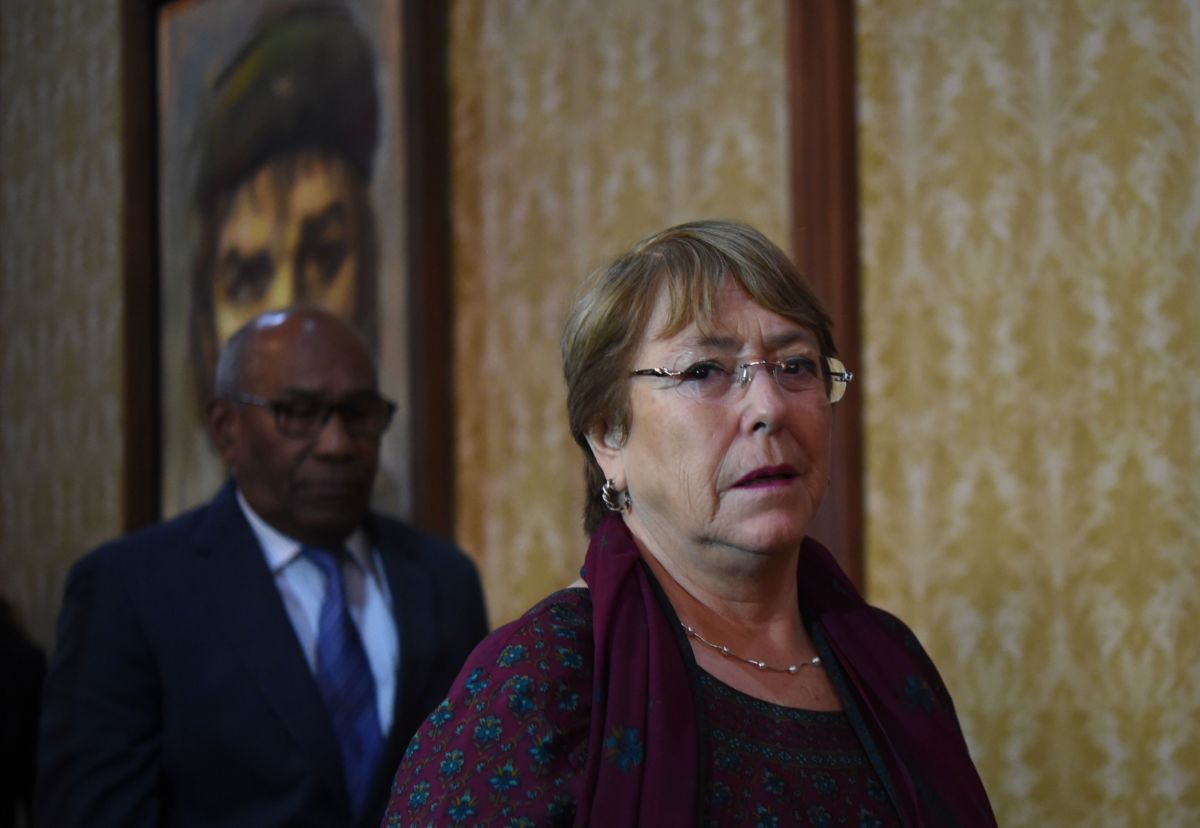The United Nations’ high commissioner for human rights on Thursday condemned the Trump administration’s embargo against Venezuela and warned the far-reaching sanctions could deny food, medicine, and other necessities to millions of people.
“I am deeply worried about the potentially severe impact on the human rights of the people of Venezuela of the new set of unilateral sanctions imposed by the U.S. this week,” U.N. human rights chief Michelle Bachelet said in a statement.
“I fear that they will have far-reaching implications on the rights to health and to food in particular,” Bachelet said, noting the sanctions will likely “exacerbate the crisis for millions of ordinary Venezuelans.”
As Common Dreams reported Tuesday, U.S. President Donald Trump signed an executive order freezing all assets of Venezuelan officials and barring any transactions with them.
Critics decried the Trump administration’s embargo as part of a broad “economic terrorism” campaign aimed at ousting elected Venezuelan President Nicolás Maduro.
Far-reaching U.S. sanctions have already had a devastating impact on the Venezuelan people and economy. According to a study published by the Center for Economic and Policy Research (CEPR) in April, Trump’s sanctions against Venezuela killed over 40,000 people between 2017 and 2018.
Economist Mark Weisbrot, a co-author of the study, called the sanctions illegal and said they “are depriving Venezuelans of lifesaving medicines, medical equipment, food, and other essential imports.”
Bachelet said the Trump administration’s embargo will only intensify that deprivation.
“There is a significant body of evidence showing that wide-ranging unilateral sanctions can end up denying people’s fundamental human rights,” said Bachelet, “including their economic rights as well as the rights to food and health.”
The U.N. rights chief’s statement came after U.S. national security adviser John Bolton touted the embargo as a way to remove Maduro and dismissed calls for diplomatic talks.
“The time for dialogue is over. Now is the time for action,” Bolton said during a summit in Peru, just weeks after the U.S.-backed effort to overthrow Maduro by force failed.
Jorge Arreaza, Venezuela’s foreign minister, denounced the Trump administration’s embargo as “new and serious aggression” designed to inflict “severe wounds on Venezuelan society.”
Speaking against the authoritarian crackdown
In the midst of a nationwide attack on civil liberties, Truthout urgently needs your help.
Journalism is a critical tool in the fight against Trump and his extremist agenda. The right wing knows this — that’s why they’ve taken over many legacy media publications.
But we won’t let truth be replaced by propaganda. As the Trump administration works to silence dissent, please support nonprofit independent journalism. Truthout is almost entirely funded by individual giving, so a one-time or monthly donation goes a long way. Click below to sustain our work.
